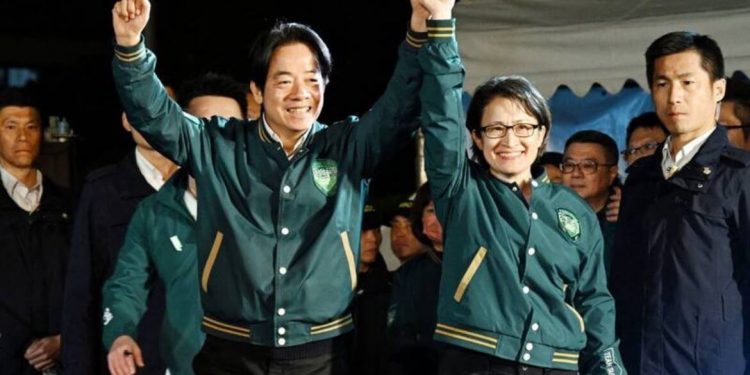Taiwan has elected Lai Ching-te of the Democratic Progressive Party (DPP) as its new president. This election marks the first instance of a party securing a third consecutive term under Taiwan’s current electoral system. Lai Ching-te, set to succeed Tsai Ing-wen after her two-term tenure, leads a party known for advocating Taiwan’s autonomy from China.
The presidential election, conducted on Saturday, was heavily influenced by the ongoing tensions with China. Beijing, which regards Taiwan as a part of its territory, has increased military pressure on the island and framed the election as a decisive moment between war and peace. The victory of Mr. Lai, who presently serves as vice president, is likely to provoke Beijing due to the DPP’s stance against the “one China principle.”
Lai Ching-te, in his victory speech, highlighted Taiwan’s dedication to democracy and its intent to align with other democracies globally. He underscored that the island had successfully resisted external attempts to influence the election. Acknowledging the absence of a parliamentary majority for the DPP, Lai emphasized his commitment to incorporating talent from various political factions. He stressed the importance of maintaining peace and stability in the Taiwan Strait and expressed a determination to protect Taiwan from threats and intimidation from China, advocating dialogue over confrontation.
The election, which also saw participation from Hou Yu-ih of the Nationalist (Kuomintang) party, favoring closer ties with China, and Ko Wen-je of the Taiwan People’s Party, centered around domestic issues. These issues included economic slowdown, housing affordability, wealth disparity, and unemployment, alongside the overarching theme of relations with China.
In the lead-up to the election, China denounced Lai Ching-te as a separatist and dismissed his calls for dialogue. Lai’s pro-independence stance in the past has been a point of contention with Beijing.
Adding to the geopolitical dynamics, Taiwan’s defense ministry reported the crossing of two Chinese balloons over the Taiwan Strait in the past 24 hours, with one flying over Taiwan. This event is part of a series of balloon sightings reported by the ministry.
Lai Ching-te’s election reflects Taiwan’s robust democratic values and its position on the global stage, particularly in the context of its complex relationship with China.



























